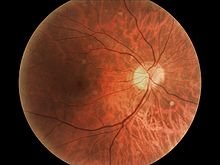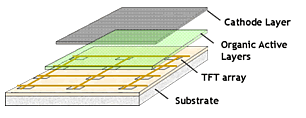Why social networks are helping to build fake news, and why is not gonna end.
To understand what a "fake news" is, we need first to check what "reality" is , into our brains.
And the first point is: reality doesn't exists. Ok: it exists, but none of us have a clue of it. What we know about reality is just what our brain builds. The job of the human brain is to build what we call "reality", out of a load of noisy, imperfect, flapping triggers of our nerves. Now, nerves are not like sensors in your laptop's camera. In the laptop camera all pixels are the same, the grid is regular , and the glass is almost perfect. If we compare with our eyes, we have that:

which is veined , not homogeneous , depends by body pressure and chemistry, while the pixel matrix is:

no veins. No imperfections. Perfect. Nothing to do with our eyes.
This happens to any of the input we got from the external side. The main job of our brain is to remove noise, veins, and take this jeopardized raw data and build reality out of it. And this is not only for perception, when we look at a picture: any of our understanding of reality, from weather to politics, is made like that. A huge noise of raw data in input, and the brain spending energy (~60%) to make a "reality" out of it.
So the first point is: reality is way expensive for the brain. The brain alone consumes 20% of daily energy intake, and if you consider it only weigts 1.3 Kg average, this is a lot. Brain is expensive. Thinking is expensive. (in terms of sugar).
Now, if reality is that expensive, to have it from another person which pre-elaborated it, could be an advantage. This is why being a social species is good: when one member of the tribe understands something, and tells to the others, the saving of energy is wide high.
And , in nature, energy is precious.
It is clear that, until communicating is cheaper (in terms of energy) than thinking, communicating will ALWAYS be able to take the place of thinking. Because is cheaper for the brain.
This is the point to stress: until communicating requires less energy than getting the same information by our own, we will prefer to get information from the others, than to build them by ourselves. Until the brain is made to save energy, or at least to try, we will ALWAYS prefer to get the "reality" communicating with others, instead of thinking. This is the architecture of brain: no way to escape.
By the way, this works pretty well, because is a huge energy saver. Until, of course, the others are giving you a reality which is not useful.
And I say "useful", not "true" : basically our brain is into a cavern made of nerves. We only see some shadows from outside, so we do not know what reality is. None of us knows. How we understand the difference between fake news and good news, is because true news are effective.
In nature, if you have a cougar trying to eat you , you can have a "realistic news" (you are in danger, run!) and a "fake news" ("this is just the conspiracy of runners, cougars are friendly"). The difference is not about "true" or "false". Maybe there is a conspiracy of runners, who knows? The very point is, running away from a cougar proved more effective than staying.
It is a matter of effectiveness, not "true" or "false": regardless of the fact there is a conspiracy of runners or not, everything is about surviving a meeting with a cougar. It is about effectiveness.
Now, let's stop thinking like a caveman, and try to apply this architecture in our world. Let's state a couple of paradigms:
- The human brain will try to save energy getting the reality from communications, if possible. If not, it will think to it. Thinking is the "Plan B".
- The human brain calls "truth" what is effective to survive and reproduce, and "fake news" what is not. This is how reality is build from noise coming from nerves.
Now, we have social media. Which means, having the reality from the others was never the same easy as it is now. We must expect, what is generated by the social media will take the place of the old idea of "reality", almost for 99% of people. The remaining 1% of people will just tell the others how reality is. This is what our species' brain is for, and used to be pretty effective when we were cavemen.
Question: what happens if this 1% of people generating contents, generates what we call bullshit or "fake news"?
Then is about effectiveness: until this bullshit is effective to make people better survive and reproduce, this bullshit will take the place of reality. Plus "take the place" is not the best term: the bullshit will BE the reality.
We do not need "The Matrix" for this to happen: our brain will ALWAYS prefer to get informations from someone else, than thinking.
People which dreams of a world where "everybody thinks using its own brain" is just dreaming of another species, which is not Homo Sapiens. If we were NOT a social species, then each of us would use its own brain , always. Until we are a social species, then we do not think always with our brain.Thinking is the "Plan B", because of energy consumption.
Here we are: social networks will produce 99% of our "reality". Now we are in the next step: how the human brain will understand if we get fake news or not?
It will check if this informations are effective, in order to survive and reproduce. In a western society, where to survive is almost due, the first criteria could be "does it helps me to reproduce?". How an information can help to reproduce is to help people socializing, meeting people to mate with, by example.
Now, imagine you are a redneck. You were ostracized, mocked, isolated. And if you are in such a state, your chance to mate are very little.
Suddenly someone proposes you "the pizzagate". Whatever it means, there are lot of peoples believing this. They meet together. They stay together. Lot of women. Lot of men. All together. Chances to mate now are higher.
So, pizzagate will enter the reality. For sure. As like speaking Klingon and being a member of "the starfleet" is: no matters if there is no "starfleet", it helps you to socialize, then to reproduce. If you can meet your next mate partner in a Trekkie conventions, starfleet is "effective", then is real.
Of course, there are lessons out of this: by example, to ostracize and mock people because of different political ideas could make them search for a new "reality" which is more effective. (Way effective, if you consider now they are storming everywhere).
Now let's introduce some economical issue in the game: wealth is not equally distributed, neither fairly distributed. This makes people to search, from others, a new "reality", which is more effective. It creates demand of a new reality.
People which is in trouble to pay the bills , feels in trouble both to survive and to reproduce. The first thing their brain will do is "the reality I built before sucks: my life the poor result of it. I need a new reality, which works better, improving my life". And now, you find that a new idea of society, helps you to find friends, to exit the social ghetto (the one some "liberals" locked you in), and... well, feels better. In a country where having a network of friends helps, if millions of people can meet all together, not only they can reproduce: they can also do business together.
Let's put all together now:
- The human brain will try to save energy getting the reality from communications, if possible. If not, it will think to it. To think is always the plan B.
- The human brain calls "truth" what is effective to survive and reproduce, and "fake news" what is not. This is how reality is build from noise coming from nerves.
- Each and every news, idea , opinion, which makes people to stay together and meet lot of other people, is raising the chance of doing business and to mate. Thus, it will be considered "real" by many. No matters which idea it is.
Since to help people survive and reproduce is basically helping people to meet each others, and to date, basically any idea which makes tons of people to stay into a room , 50% women and 50% men, is good for this purpose. If you put hundreds of people of both sexes in the same room, both business and mating are easier. So the alternative reality "works". Doesn't matters if this is a Star Trek convention or a Milo Yannopoulos meeting: spending time together helps.
Economical issue created a huge demand of an alternative reality, where this reality is "true" when it helps people to have business and mate. Which means, this new "reality" we call "fake news" is "true" until it helps people to spend time together. "Facts", "truth" aren't relevant. Only effectiveness is.
This "alternative reality" is what we call "fake news".
It's here to stay. Below an example of how it works. All the students, male and female, in the same room. Ad before, liberals ostracized them. Quite an improvement for that students, right?
I repectfully disagree. Though I respect the amount of work you put into this. I think your argument works against itself. I think it takes more energy to disagree with mainstream media because you're always in a defensive position. As in it takes more research to back up your argument against a mainstream narrative. It would be a whole lot easier to sit on my sofa and tune into CNN or NBC or whomever and let them tell me what i need to believe.
I should clarify that it's my contention that the mainstream media puts out as much, if not more, fake news as these sources they deem as fake
When I talk about energy I mean the sugar the brain consumes, not how tired you feel, or the effort you must give. There is plain no difference in the human brain if thinking about mainstream or not, it still consumes a lot. Not thinking , and just listening, is much cheaper. This is why being a social species is a saving of energy: one thinks, all the others just listen. Doesn't matters what you think exactly, if mainstream or not, the energy consumption is still the same.